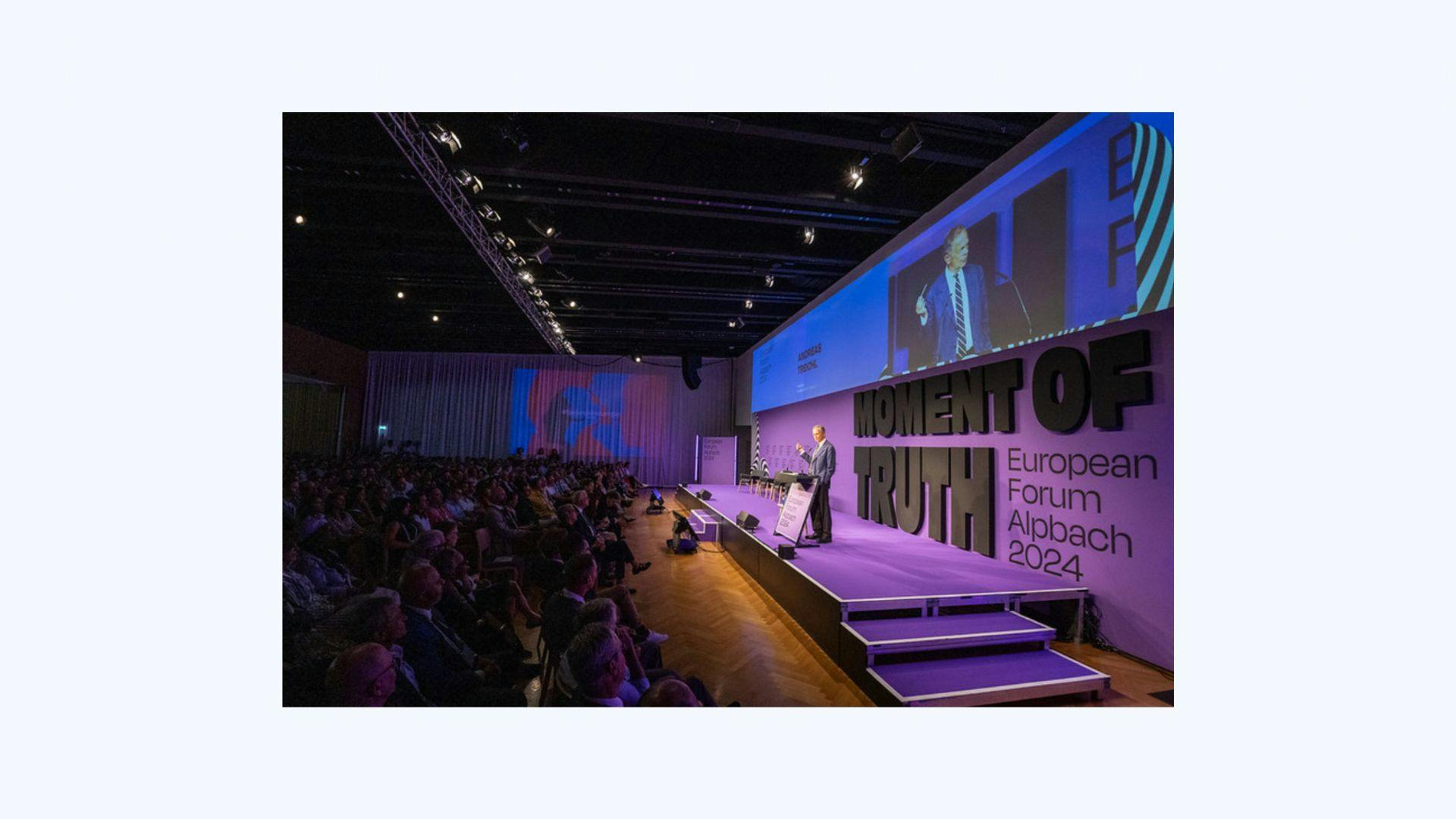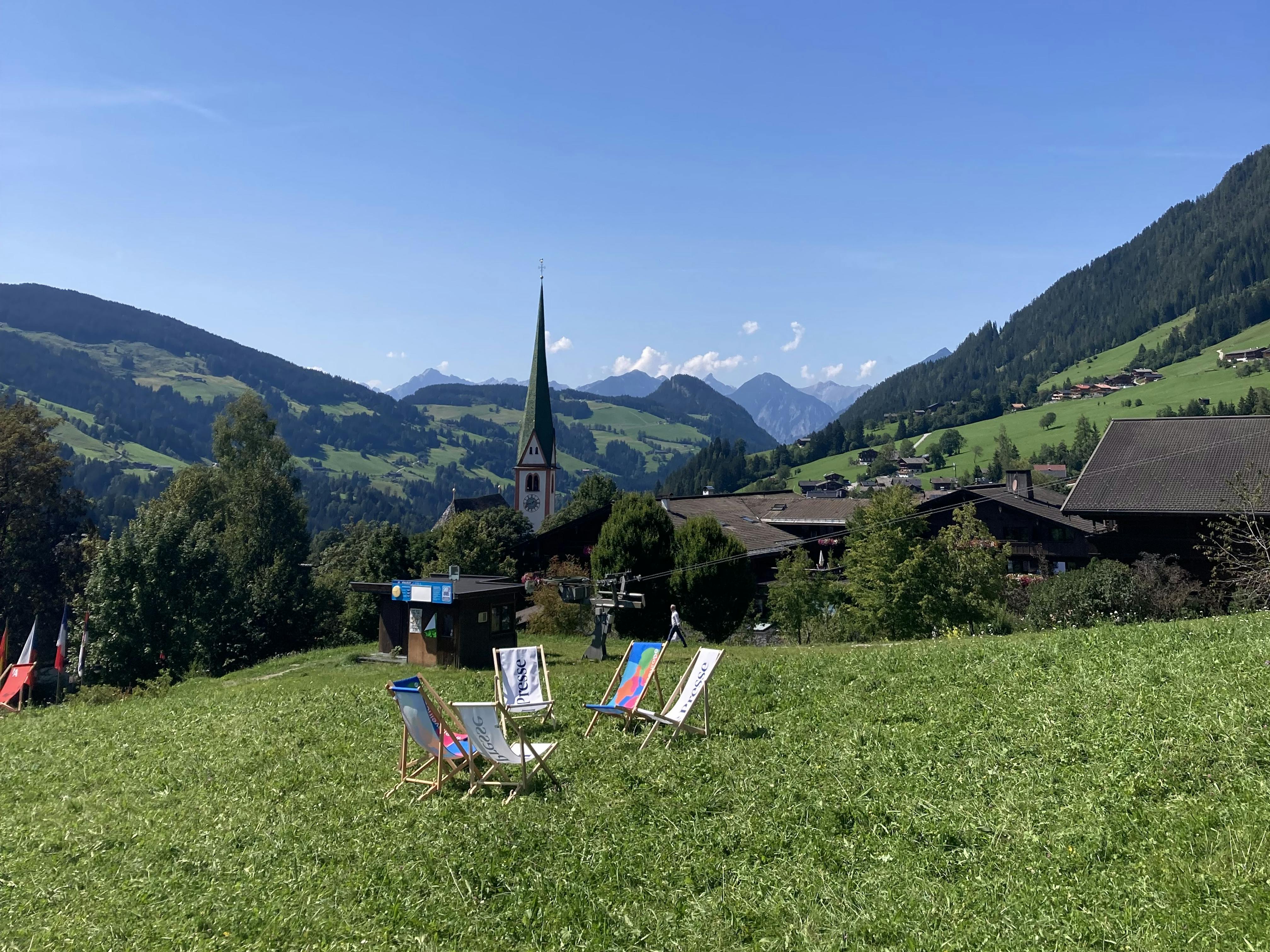The latest assessment report of the Intergovernmental Panel on Climate Change (IPCC) had a very clear message: Our window of opportunity to secure a liveable and sustainable future on this planet is rapidly closing and urgent action to reduce GHG emissions is needed now. This common sense of urgency and the need to address climate change through a holistic and global approach was shared among many participants of the European Forum Alpbach 2024, which brought together people from Europe and beyond to reflect and exchange on Europe’s role in the world.
During the “Europe in the World Days,” speakers also discussed how to best respond to current and future challenges facing Europe and agreed that increased resilience, cooperation and rejuvenating trust in European democracy are essential to help navigate political fragmentation and uncertainties in the long term. As one of the panelists noted: “The EU is good at responding to successive crises with successive answers and it will be able to do so in the future.”
Indeed, amidst the climate crisis unfolding, the EU has undergone a myriad of crises in recent years: the COVID-19 pandemic, the energy and cost-of-living crisis, the food crisis, Brexit, Russia’s invasion of Ukraine and migration pressures. With the European Green Deal, the Commission acknowledged that the EU should play a major role in addressing the planetary crisis and established an ambitious roadmap to ensure net zero emissions by 2050, making Europe the world’s first climate-neutral continent. At the same time, participants of the EFA highlighted that political debates - including around climate change - have become increasingly politicised, polarised and contested.
This polycrisis, characterised by interrelated economic, social, political, health and geopolitical emergencies all unfolding at the same time, has increased citizens’ frustrations with politics, and also led to a rise of far-right populists giving simple answers to complex problems. In recent years, far-right forces have made substantial gains in many member states, including eurosceptic parties like the Alternative for Germany, the French National Rally, the Italian Lega or Austria’s Freedom Party. In the recent European Parliament elections, the nationalist and far-right parties won a fair amount of seats, making it difficult to construct majorities in the EP, especially on contentious issues such as green policies. Opposing the European Green Deal – and environmental and climate-related policies more broadly – has become a defining feature of right-wing populists, undermining progress on green legislation and posing a challenge to democracy in Europe and beyond.
A growing presence of far-right politicians in the European Parliament and across member states means more fragmentation, more polarisation and more radical and Eurosceptic narratives. Due to this, the Green Deal’s ambition and implementation faces significant challenges. Debates surrounding the EU’s climate and environmental policy are increasingly instrumentalised by far-right groups, depicting the green transition and its economic costs as a burden for European citizens, consumers, farmers and businesses. The recurring farmer protests across Europe over the past few years is just one of many examples where far-right and populist parties have successfully exploited public anger and fears to fuel further political polarisation.
On several occasions, speakers at the EFA emphasized that EU politics are not immune to threats from populist and right-wing extremism. “We are facing active hostility towards our democratic systems,” putting the future of the green transition and democracy itself at risk. Therefore, the EU should embrace political leadership to uphold its common democratic values against illiberal politics, build up resilience and most importantly, accelerate Europe’s green transition instead of relegating the European Green Deal to the sidelines.
Amidst the polycrisis, Europe needs to be a firefighter and an architect at the same time
This double issue of tackling growing societal fragmentation and defending the EU’s democratic values was a recurring theme at the European Alpbach Forum. During the discussions, a broad consensus emerged, which recognised that building democratic resilience, finding common ground and defending Europe’s core and foundational values is essential to address the EU’s multiple challenges.

EU decision-makers and member states must work together to find new strategies and tactics to operate in times of political uncertainty. As Jacques Delors, former president of the European Commission and fierce proponent of European integration, once said: “In Europe, you need the firefighter but also the architect.”
Particularly to tackle the climate crisis, the EU will have to both counter the political backlash while maintaining momentum for climate politics. This will not be an easy task, as the climate crisis brings such transformative social, economic and political changes that it will put democracy under pressure. For this reason, the EU needs to strengthen its democratic resilience to better navigate the far-right surge. Overcoming polarisation and reaching consensus on climate and environmental policies will also require cooperation and more room for negotiation and dialogue - as experienced at the European Alpbach Forum 2024.
This blog post is part of a series of blog posts in collaboration with the European Forum Alpbach 2024






